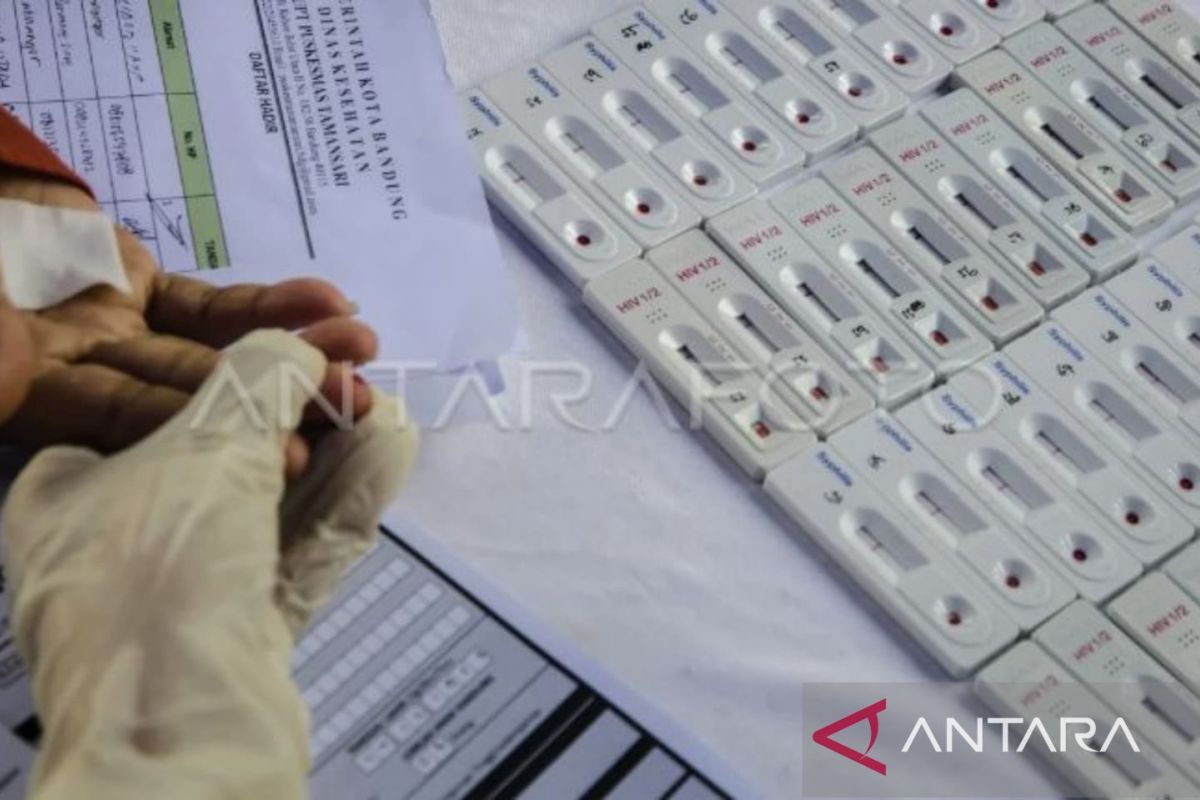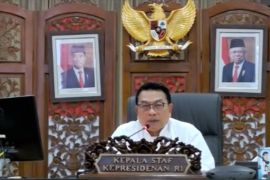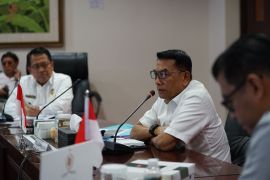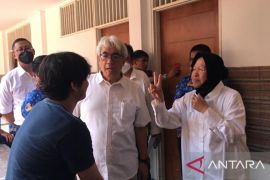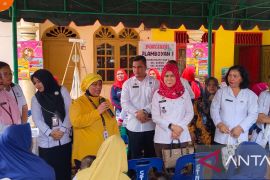She mentioned that the government requires support from the academia, the business sector, society, and the media to combat HIV/AIDS and STIs, and not solely relying on the health sector.
"The government cannot work alone to overcome and suppress the spread of HIV/AIDS and STIs. We need support from other sectors," Prahastuti said in a release issued on Thursday.
The government is making considerable efforts to address HIV/AIDS and STIs, but the progress remains slow, particularly in terms of meeting antiretroviral (ARV) treatment targets and achieving virus suppression, she emphasized.
She added that KSP has called for strengthening the penta-helix collaboration among five stakeholders: the government, business sector, academia, community, and media.
During a coordination meeting in Jakarta on Wednesday, the Joint United Nations Program on HIV and AIDS (UNAIDS) and the Healthy Indonesia Partnership Foundation (YKIS) outlined the importance of penta-helix collaboration for the management and prevention of HIV/AIDS.
Prahastuti noted that since the National AIDS Commission (KPAN) ceased operations in 2017, program coordination and synchronization have been suboptimal, resulting in a reduction in the targets of controlling HIV/AIDS and STIs in Indonesia.
For example, the proportion of people living with HIV (PLHIV) undergoing ARV treatment reached 38 percent in 2023, while the percentage of PLHIV with suppressed viral loads is still at 35 percent.
"The problem is that ARV have been out of stock in some locations. This issue needs immediate attention to meet our target for 95 percent ARV treatment and virus suppression for PLHIV by 2030," she informed.
She said that the government is aiming for "Triple-95" by 2030, meaning that 95 percent of PLHIV would know their status, 95 percent would receive ARV treatment, and 95 percent would be on ARV treatment with suppressed virus loads.
To achieve this target, KSP is seeking to enhance the effectiveness of HIV/AIDS prevention interventions by optimizing coordination functions, improving service quality, strengthening the regulatory framework, and expediting the implementation of research into policy.
"This cross-sector commitment also needs to be sustained. Addressing HIV/AIDS requires hard work and joint collaboration, not only within the health sector," Prahastuti emphasized.
The Health Ministry has also prepared the National Action Plan (RAN) for the Prevention and Control of HIV/AIDS and STIs in Indonesia for 2020–2024.
The plan includes a target to reduce HIV/AIDS prevalence from 0.24 to 0.18 per 1,000 population.
Related news: Jakarta expands viral tests to reduce spread of HIV/AIDS
Related news: Stigmatization of children with HIV/AIDS still high: Ministry
Translator: Indra Arief P, Resinta Sulistiyandari
Editor: Anton Santoso
Copyright © ANTARA 2023
